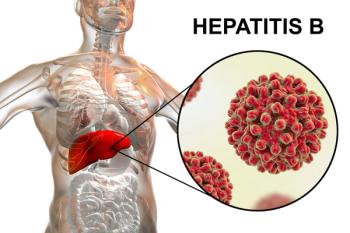
What Is The Link Between Antidepressants and Hospital-Acquired Clostridium Difficile Infection?
Researchers found an increased occurrence of CDI in individuals who were prescribed antidepressants.
Though CDI has become increasingly more common in recent years, it is plausible that the infection can stem from more risk factors than we are currently aware of.
Researchers at Digestive Disease Week in Chicago stated that only “scattered evidence” existsregarding the link between CDI and antidepressant medications, something the researchers aimed to change. And according to their research1, antidepressant use on its own continues to skyrocket—the Centers for Disease Control say2 that from 2015-2018, over 13% of US adults used antidepressants. While more current data for US adults was harder to find, a study from The Pharmaceutical Journal found3 that antidepressant prescribing increased rose 5.1 percent from 2021 to 2022 in England, marking the sixth straight year the country saw an uptick.
As it turns out, there is a link between antidepressants and hospital-acquired CDI, the data showed. Data was collected from over 55 million hospitalized individuals, and samples were measured per 100,000 individuals. According to the researchers, “The 1 year incidence of Clostridium difficile infection in patients who were not on antidepressant medications was 580 per 100,000 individuals (0.58%). The 1 year incidence of Clostridium difficile infection in patients who were on antidepressant medications was 770 per 100,000 individuals (0.77%).”
Age was also a factor in CDI infections for those examined—the older a patient, the greater the risk of CDI while using antidepressants.
“Our study illustrates that the risk of hospital-acquired Clostridium difficile infection is higher in patients who are on antidepressant medications compared to the ones who are not,” the researchers concluded. “In contrary to fluoxetine; mirtazapine, nortriptyline, and trazodone were associated with increased risk of CDI in hospitalized patients.”
Reference
1. Boustany A. Onwuzo S. Alchirazi KA, et al. Antidepressant medications are associated with increased risk of hospital-acquired Clostridium Difficile Infection: A population-based study. Presented at Digestive Disease Week; May 6-9, 2023; Chicago, Illinois. Abstract 1877.
2. Antidepressant Use Among Adults: United States, 2015-2018. Centers for Disease Control and Prevention. September 2020. Accessed May 9, 2023. https://www.cdc.gov/nchs/products/databriefs/db377.htm
3. Antidepressant prescribing increases by 35% in six years. The Pharmaceutical Journal. Published July 8, 2022. Accessed May 9, 2023. https://pharmaceutical-journal.com/article/news/antidepressant-prescribing-increases-by-35-in-six-years
Newsletter
Pharmacy practice is always changing. Stay ahead of the curve with the Drug Topics newsletter and get the latest drug information, industry trends, and patient care tips.























